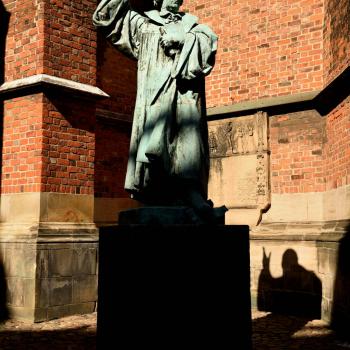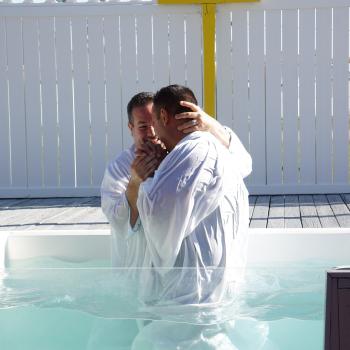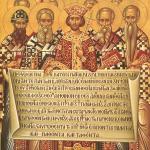Sometimes, it will be said by those trying to find something to criticize Vox Nova that Vox Nova is irrelevant when it does not have a post on a specific issue in the news on a given day. While it is true that what happens can be important, it is also true that what is in the news is often given sufficient commentary elsewhere, and does not always need a post here. There is no need to just get caught up in the moment when there is much more at stake. That is the problem with this kind of criticism: the notion of relevance here is transitory – if the only thing which is relevant is what is in the news, then relevance is worthless, because what is news one day is worthless the next. Christians should be concerned about what happens, but more importantly, they should be concerned about changing things, and looking beyond the illusion of the moment.
What I am saying is that relevance should not be based upon the hot topics of a given day, to be guided and judged by the whim of happenstance. If this is all that relevance means, then relevance is meaningless because, through the passage of time, everything would become irrelevant. It is this kind attitude which regulates Christianity to the past because “Jesus is history.” The focus is wrong. And when all you do is respond to what is happening you have no ability to think through how we got where we are today, and no ability to work for the better future. When caught in the moment, all you have is the moment.
For this reason, while I sometimes will reflect upon issues (especially if no one else has brought it up), for the most part, my vision and interest is spiritual. A sound spiritual basis will help lead to a better society. To be truly relevant is not to engage the moment, but to engage eternal truths and to prepare people for the future. Ellul tells us that the Christian mission is to engage the needs of the future, to lead by example, not to be led by the events of the world and to be subsumed by them. It is those caught in the day which have totally given up their Christian duty and turned their way into the partisan thoughts of the present.
And so, to end this post, here are some of Ellul’s reflections on this very issue. In them there is wisdom:
This need for statements is connected with another sign of making the Church political, namely, the passion for the latest thing, about which we have already said a few words. This passion which, in Christians as in others, comes from an addiction to the press, television and radio, produces, alas, the same effects in them as in everyone else – political illusion. Among these effects are the inability to grasp a political or economic situation as a whole, a weakness of political thought, an ignorance of the various levels on which political action take place, and a blindness to the fact that the most recent and spectacular is always the least important and the least decisive.[1]
The political issue becomes ultimately to such an extent that persons and churches are judged in terms of political criteria.[2]
This idea that, in the last analysis, politics is the ultimate in importance is never stated outright, because one knows very well that it is theologically false and one avoids coming out openly with theological error. [3]
I would not hesitate to stake the unity of the Church on a question of truth, but the political debate, the choice among political options, the presence to the world by the way of politics is not a question of truth. This can be demonstrated as well from the standpoint of political reality as from the standpoint of the data of revelation. Political questions can be burning questions in the world, but if they are burning questions that is the spirit of the world. The One-who-divides, the Deceiver, he is it who makes them that way.[4]
The tendency of the world and the State is, in fact, to become fulfilled and then to shut themselves up again in self-possession. The principal and decisive role (so seldom played by Christians) is precisely that of keeping situations open through this tension and challenge, and preventing the termination and close of action.[5]
She [the Church] should place the world in relation to herself. She should give meaning to events in terms of the revelation (and not try to slip the revelation into the gaps of the worlds activities!). She should bring about the events instead of trailing it, submitting to it, or even trying to explain it. [6]
Precisely because Christians should not be rooted in the current situations of the world, they (and they alone) ought to render the outstanding service of giving warning of political issues to come, which are going to be knotty and threatening to appear. That would be an absolutely decisive service, because it would come at a time when political situations could still be resolved. That is the time when it is still possible to bring a just solution to bear, when human tragedy might still be averted.[7]
[1] Jacques Ellul, False Presence of the Kingdom. Trans. E. Edward Hopkin (New York: Seabury Press, 1972), 93.
[2] Ibid., 95
[3] ibid., 96.
[4] Ibid., 98.
[5] Ibid., 179.
[6] Ibid., 182.
[7] Ibid., 188.
















